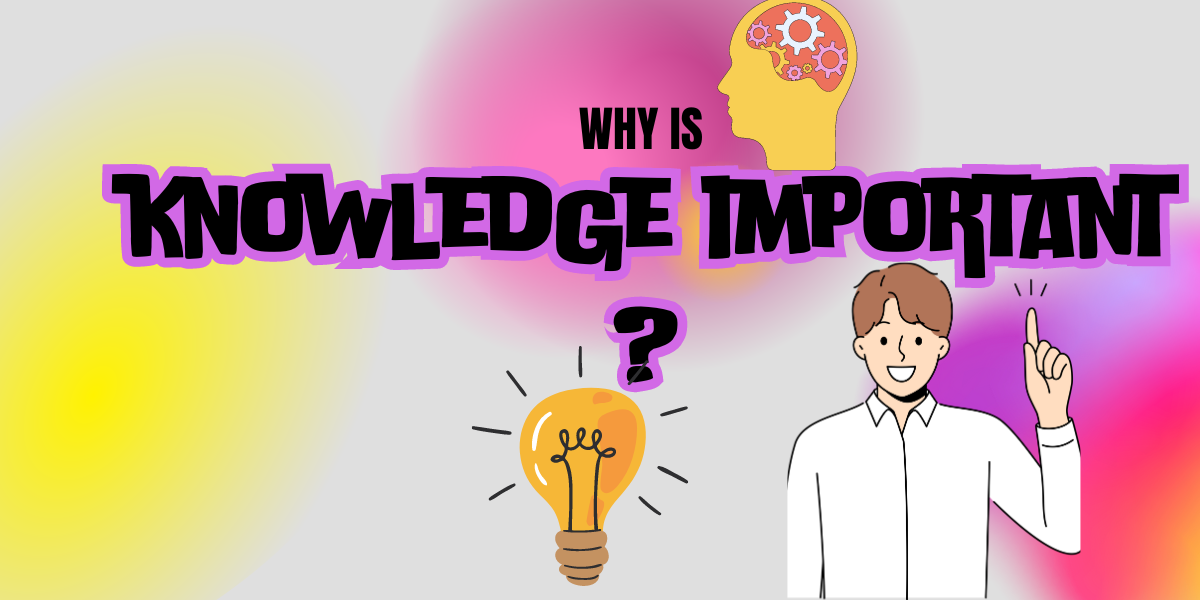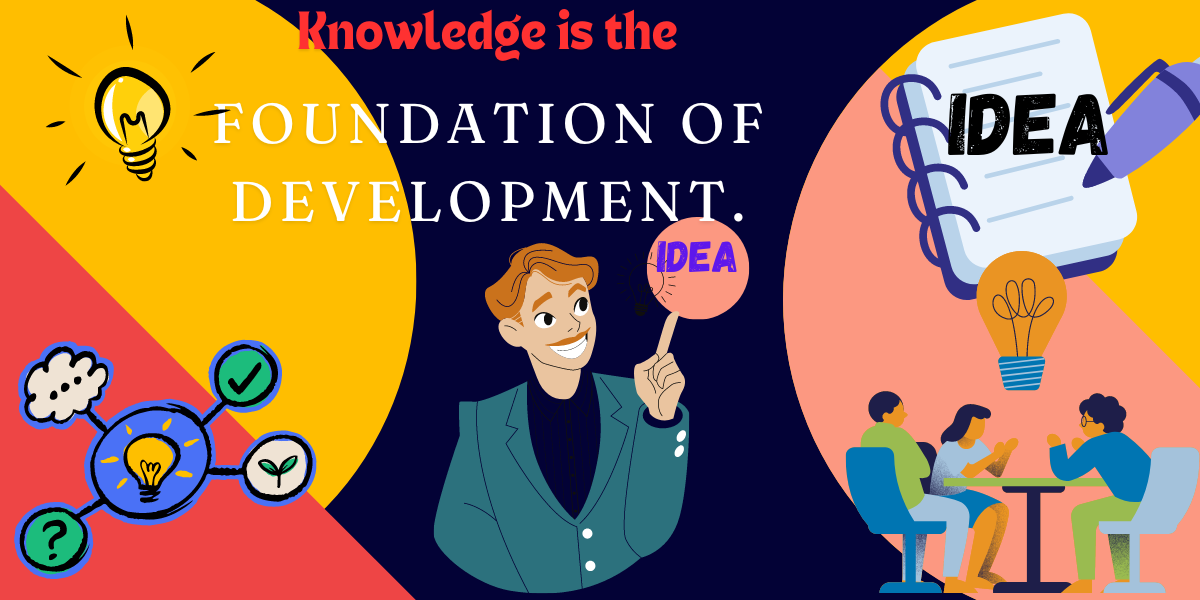 Why is knowledge important ?
Why is knowledge important ?
Knowledge is the foundation of development.
Overview
One element that continuously permeates every facet of our life in the enormous tapestry of human existence is knowledge. Knowledge is the foundation of development, a lighthouse that helps us navigate life’s challenges, and an engine for both individual and collective advancement. Investigating knowledge’s many advantages, from social progress to personal empowerment, is necessary to comprehend why it is significant. This blog explores the value of information and emphasizes how important it is for social cohesion, economic growth, personal development, and general human advancement.
The Basis for Individual Growth
Critical Thinking and Cognitive Development
The cornerstone of cognitive development is knowledge. It molds our perception of reality, empowering us to exercise critical thought and arrive at wise choices. We grow intellectually as a result of gaining knowledge, which improves our capacity for scenario analysis, problem solving, and creative thought. This cognitive development is crucial for personal growth because it gives us the ability to confidently and competently negotiate the challenges of life.
Psychological and Emotional Health
In addition, knowledge is essential to emotional and psychological health. We can better control our emotions, develop resilience, and keep a good attitude on life when we have a solid understanding of both the outside world and ourselves. For example, understanding mental health can result in improved self-care routines and a deeper awareness of our feelings and needs. This in turn promotes a feeling of contentment and well-being.
Innovation and Economic Prosperity Fuel Economic Growth
Economic growth is mostly fueled by knowledge. In the knowledge-based economy of today, knowledge and experience are priceless resources. People with educations add new ideas, skills, and innovations to the workforce. Businesses and sectors benefit greatly from the knowledge held by their workforce, which boosts output and creates wealth. Additionally, entrepreneurship is encouraged by knowledge, allowing people to start new companies and advance economic growth.
Technological Innovation and Progress
Knowledge is the primary source of innovation, which is essential to growth. The constant quest of knowledge propels the development of science, technology, and medicine. Scientists and researchers expand on previously acquired knowledge to make innovative findings and create cutting-edge technology that raise our standard of living. This unrelenting pursuit of knowledge produces breakthroughs that change entire sectors, address major world issues, and influence the course of history.
Mutual Understanding and Social Cohesion
Encouraging Peace in Society
Acquiring knowledge is an effective means of fostering harmony and social cohesiveness. Tolerance, empathy, and respect for one another are fostered by an understanding of many cultures, histories, and viewpoints. People with higher levels of education are more inclined to value diversity and participate in positive discourse, which lowers bias and discrimination. Understanding social concerns and human rights also gives people the ability to speak up in favor of justice and equality, which promotes harmony and inclusivity in society.
Maintaining Cultural Legacy
To preserve cultural heritage and traditions, knowledge is crucial. We make sure that the rich fabric of human history and culture is passed down to future generations by means of education and knowledge transfer. Our sense of identification and belonging is strengthened by the preservation of cultural heritage, which also improves our lives by illuminating our ancestors’ contributions and our own roots.
Self-determination and Empowerment
Individual Self-Determination
When people possess the knowledge necessary to make wise decisions and take charge of their life, they are empowered. People who have received an education are better able to follow their objectives, overcome obstacles, and succeed personally. For underprivileged and marginalized populations in particular, this empowerment is essential because it creates pathways and opens doors to opportunity.

Social mobility’s path.
Civic Participation and Democracy
A well-informed populace is essential to a robust democracy. Those who are knowledgeable about social issues, civic rights, and political processes are better equipped to engage with their communities and have their opinions heard. More informed citizens are better able to push for change, hold their leaders responsible, and participate in the democratic process. Active civic participation advances social justice and fortifies democratic systems.
Global Issues and Sustainable Development
Taking Care of International Concerns
In a globalized society, knowledge is critical to solving issues like poverty, health crises, and climate change. It is possible for us to create practical answers and put into practice sustainable methods when we comprehend the intricacy of these problems and their underlying causes. In order to address these global issues and guarantee a brighter future for everybody, knowledge exchange and cross-border cooperation are essential.
Sustainable Development
The sustainable development movement is fundamentally about knowledge; the knowledge necessary to make decisions and take actions that will lead to the responsible use of natural resources, the equitable growth of society, and economic opportunity. That is an integration of knowledge into sustainable development plans even small-medium enterprises where we are able to balance the demand for immediate returns while replenishing resources for future generations and lastly it’s a wise path to a world that can sustain and prosper.
Conclusion
The importance of knowledge cannot be exaggerated. Knowledge is the foundation of personal enrichment, economic and social development, and Nation building capability. In a broad and deep sense, knowledge improves our lives and enhances our understanding of the world around us. It enables us to discover the mysteries of the universe, confront ignorance with reason and intolerance with tolerance, ease adversity with ingenuity and hardship with resilience, broaden human experience through the creative power of imagination … And as we face an increasingly complex world today, we must continue to learn in order to overcome challenges, adapt to changes in society and work together for a better future.
Action
As we consider the value of knowledge, let’s make a commitment to lifelong learning and the never-ending search for understanding. We may realize the full potential of people and societies by valuing and investing in education, which will advance society and promote a more caring, knowledgeable, and sustainable global community. Let’s accept knowledge’s power and use it for the greater good as a group.

